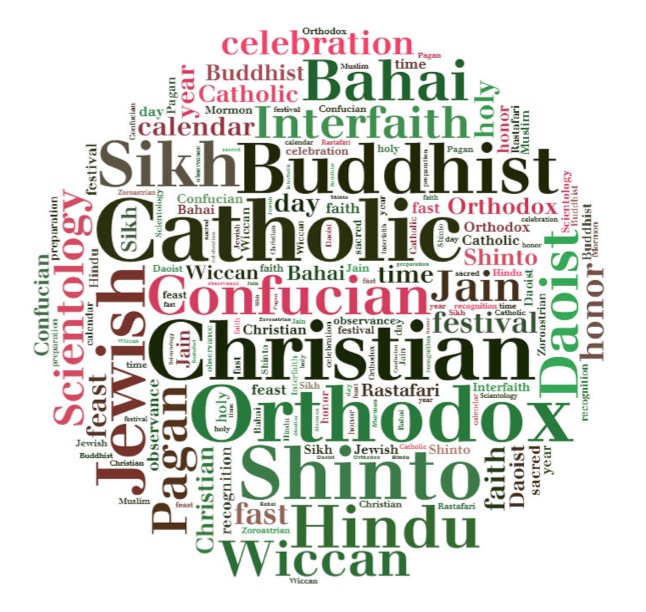 As an Educate Together school, we teach the Learn Together Curriculum.
As an Educate Together school, we teach the Learn Together Curriculum.
One strand of this curriculum is Belief Systems. The general aim of this strand is to develop in children a critical knowledge, understanding and awareness of the teachings of religious and non-theistic belief systems and how these systems relate to our shared human experience. The emphasis is placed on an exploration of the infinite variety and richness of humankind through nurturing a respect for a person’s right to hold and practice individual belief systems and through creating spaces where values can be articulated and critically examined.
Through discussions with our Parent teacher Association and parent body, we have developed an Inter-Faith Calendar. This is a bi annual calendar. Children learn about a group of religions every second year, as outlined below
| Group 1 (Junior Infants, 1st, 3rd, 5th class) | Group 2 (Senior Infants, 2nd, 4th, 6th class) |
| Humanism/AtheistHinduismJudaism
Christianity Shinto Jain Rastafari
|
Humanism/AtheistSikhismBuddhism
Islam Zoroastrian Baha’i Wicca/Pagan |
Our Learn Together co-ordinator Aoife, has put together the inter-faith & event calendar below. This calendar marks all main religious celebrations, secular events and school events. This is a working document and we appreciate parental feedback on dates & events marked on the calendar. We recognise that parents are the primary educator of their children, and many parents have more personal experience and personal knowledge of religious belief systems than staff, therefore your feedback on calendar and ways in which the calendar can be improved are welcomed. Please email aoife@powerstownet.com.
[gview file=”https://www.powerstownet.com/wp-content/uploads/2015/09/LT-Interfaith-and-Events-Calendar-2015-2016.pdf”]
Information on Learn Together Curriculum from the Educate Together National Office:
The Learn Together ethical education curriculum is taught in place of religious instruction in Educate Together schools. There are four strands in the Learn Together, detailed below. The ethical education curriculum can be described as follows:
An education which helps learners to develop critical awareness and understanding of moral decision-making, and a heightened awareness of social, ethical and moral issues and standards.
Ethical Education nurtures respect for a person’s right to hold and practice religious and other beliefs. It involves an exploration of the infinite variety and richness of humankind, and the creation of intercultural spaces where values can be articulated and critically examined. Ethical Education focuses on questions of equality, justice, sustainability and active citizenship. It helps learners to develop spiritually and to think critically, and empowers them to make a difference.
The Learn Together Mission Statement:
To promote a philosophy of education in which no child is considered an outsider; which promotes the fullest development of ability irrespective of gender, class or stereotype and which encapsulates this ethos in a democratic partnership uniquely combining the involvement of parents with the professional role of teachers.
Strand 1: Moral & Spiritual
The general aim of the strand is to help develop in children a critical knowledge, understanding and awareness of right and wrong and a heightened awareness of social, ethical and moral standards through reflecting on the meaning and purposes of life. The strand should encourage and develop the individual on the journey to inner discovery and empower the child to make informed moral decisions.
Strand 2: Equality & Justice
The general aim of this strand is to develop in children a critical knowledge, understanding and awareness of issues relating to human rights, equality, culture and diversity, social justice and social inclusiveness and to empower them to make a difference.
Strand 3: Belief Systems
The general aim of this strand is to develop in children a critical knowledge, understanding and awareness of the teachings of religious and non-theistic belief systems and how these systems relate to our shared human experience. The emphasis will be placed on an exploration of the infinite variety and richness of humankind through nurturing a respect for a person’s right to hold and practice individual belief systems and through creating spaces where values can be articulated and critically examined.
Strand 4: Ethics & the Environment
The aim of this strand is to develop in children a knowledge, appreciation and respect for their environment and to empower them to take an active role in its stewardship.


No responses yet